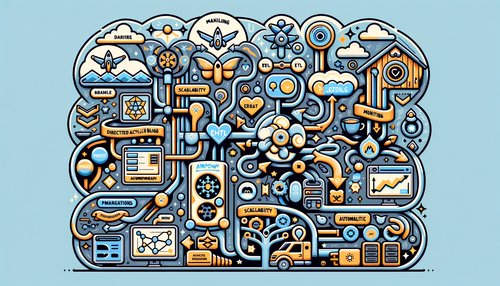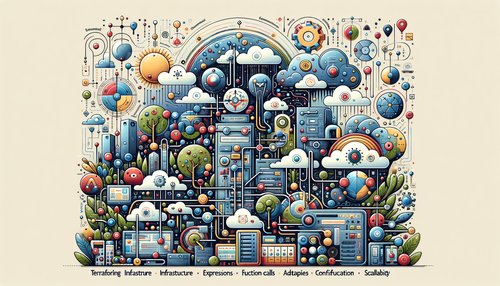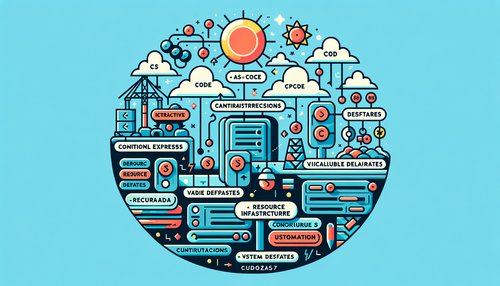Unleashing Innovation: How Docker Hub is Revolutionizing Software Development in 2023
In the rapidly evolving landscape of software development, Docker Hub has emerged as a linchpin for innovation and efficiency. As we delve into the year 2023, it's clear that Docker Hub is not just a tool but a revolution, redefining the paradigms of development, deployment, and collaboration. This blog post will explore the multifaceted ways in which Docker Hub is transforming the software development industry. From simplifying project setups to fostering collaboration across global teams, we'll uncover the secrets behind Docker Hub's impact on the tech world.
The Core of Docker Hub's Innovation
At its core, Docker Hub is a cloud-based repository service where users can share and manage container images. But it's the application of this service that has sparked a revolution. By providing a centralized platform for storing and distributing container images, Docker Hub has made it significantly easier for developers to access pre-configured environments. This not only speeds up the project setup phase but also ensures consistency across development, staging, and production environments.
Streamlining Development Workflows
One of the most significant impacts of Docker Hub is its ability to streamline development workflows. By using Docker containers, developers can create isolated environments for each project. This isolation eliminates the "it works on my machine" problem, as every team member works with an environment that mirrors production. Furthermore, Docker Hub's integration with continuous integration/continuous deployment (CI/CD) tools automates the testing and deployment processes, enhancing efficiency and reducing the scope for human error.
Enhancing Collaboration Across Teams
Docker Hub has proven to be a boon for collaboration, particularly in a world where remote work has become the norm. Teams spread across different geographies can work on the same project without worrying about inconsistencies in their development environments. Docker Hub's repository allows for easy sharing of container images, making it straightforward for team members to pull the latest version of an application and get up to speed, regardless of their location.
Facilitating Microservices Architectures
The adoption of microservices architectures has been a significant trend in software development, and Docker Hub is at the forefront of this movement. By enabling developers to containerize individual components of an application, Docker Hub facilitates the microservices approach, leading to applications that are easier to scale, update, and maintain. This modular architecture not only improves performance but also allows teams to work on different components simultaneously, accelerating development cycles.
Practical Tips for Leveraging Docker Hub
- Explore Official Images: Start by using Docker Hub's official images for widely used software like MySQL, Redis, and Node.js. These images are maintained by the developers of the software and Docker, ensuring reliability and security.
- Automate Builds: Use Docker Hub's automated build feature to automatically build your Docker images when you push code to a repository, simplifying the deployment process.
- Organize with Teams and Organizations: Make use of Docker Hub's teams and organizations features to manage access to private repositories, enhancing security and collaboration within your projects.
- Implement Version Tagging: Adopt a consistent version tagging strategy for your images to keep track of different versions and ensure that the correct image is used at each stage of development.
Conclusion
Docker Hub is not just changing the way software is developed; it's setting a new standard for innovation, efficiency, and collaboration in the tech industry. As we move through 2023, the influence of Docker Hub is only set to grow, with more developers and organizations leveraging its capabilities to streamline their development workflows, enhance collaboration, and embrace microservices architectures. Whether you're a seasoned developer or just starting out, exploring Docker Hub's offerings could be a significant step towards revolutionizing your software development practices.
As we've seen, Docker Hub offers a range of features that can transform the development lifecycle. By taking advantage of these tools, developers and teams can not only improve their productivity but also ensure that their applications are robust, scalable, and consistent across all environments. So why not dive in and see how Docker Hub can revolutionize your development processes? The future of software development is here, and Docker Hub is leading the charge.
Recent Posts

Unlocking the Power of Terraform: Mastering Conditional Expressions for Smarter Infrastructure Automation

Unveiling the Future: Navigating the Public Interface of Apache Airflow for Streamlined Workflow Management
Apache Airflow
Mastering Workflow Automation: Unconventional Apache Airflow How-To Guides for the Modern Data Enthusiast
Apache Airflow
Mastering the Cloud: Unveiling AWS CloudFormation Best Practices for Seamless Infrastructure Management



